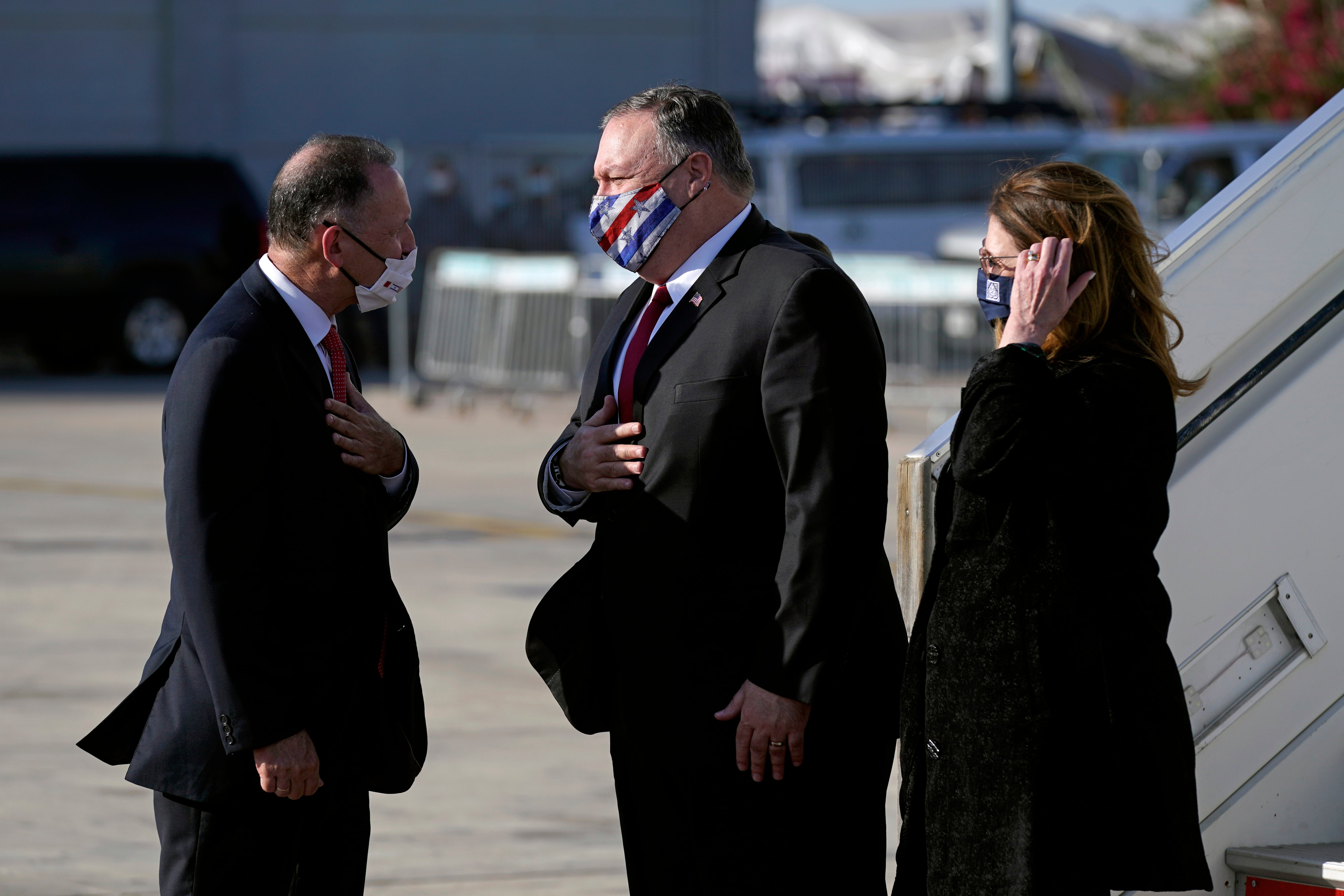Bahrain FM visits Israel in latest sign of warming ties
Bahrain’s foreign minister is visiting Israel in the latest sign of warming ties following a series of U.S.-brokered normalization accords between Israel and Arab nations

Your support helps us to tell the story
From reproductive rights to climate change to Big Tech, The Independent is on the ground when the story is developing. Whether it's investigating the financials of Elon Musk's pro-Trump PAC or producing our latest documentary, 'The A Word', which shines a light on the American women fighting for reproductive rights, we know how important it is to parse out the facts from the messaging.
At such a critical moment in US history, we need reporters on the ground. Your donation allows us to keep sending journalists to speak to both sides of the story.
The Independent is trusted by Americans across the entire political spectrum. And unlike many other quality news outlets, we choose not to lock Americans out of our reporting and analysis with paywalls. We believe quality journalism should be available to everyone, paid for by those who can afford it.
Your support makes all the difference.Bahrain's foreign minister visited Israel on Wednesday in the latest sign of warming ties following a series of U.S.-brokered normalization accords between Israel and Arab nations.
Foreign Minister Abdullatif bin Rashid Alzayani flew into Tel Aviv on a Gulf Air passenger plane and was to hold meetings in Jerusalem with Israeli Prime Minister Benjamin Netanyahu and other top officials.
He will also take part in a trilateral meeting with Netanyahu and U.S. Secretary of State Mike Pompeo, who arrived later Wednesday.
The foreign minister was welcomed on the tarmac by his Israeli counterpart, Gabi Ashkenazi, and other U.S. and Israeli officials. Everyone wore masks and tapped elbows in greeting due to concerns about the coronavirus.
“I arrive here from a country convinced of the importance of peace," Alzayani said later at a press conference with Ashkenazi. "There is a clear keenness on both sides to make this cooperation work and to demonstrate this can have clear positive benefits for our countries and the region.”
He invited Ashkenazi to attend next month's Manama Dialogue, an annual security conference held in Bahrain's capital.
Ashkenazi said they hope to celebrate the opening of embassies by the end of the year. He said Bahrainis will soon be able to apply for visas online and that the two countries will soon have direct flights.
He also welcomed the decision of the Palestinian Authority to restore ties with Israel that had been cut off earlier this year over Israel's plans to annex parts of the occupied West Bank. Israel put those plans on hold when the United Arab Emirates agreed to normalize ties in August.
“I welcome the decision yesterday by the Palestinians to resume cooperation with Israel, security cooperation,” Ashkenazi said. “Our door is open to renewed negotiation, and I urge the Palestinians to step through this door with no preconditions.”
Later, Alzayani met with Israel's figurehead president, Reuven Rivlin, who presented him with a copy of a Hebrew version of the Quran translated by the president's late father.
Bahrain followed the UAE in agreeing to establish full diplomatic ties with Israel earlier this year. The breakthrough reflects a changing Middle East in which Israel and the Gulf countries view Iran as a shared threat that eclipses the decades-old conflict with the Palestinians.
Sudan also agreed to establish ties with Israel as part of a larger agreement with the United States that will pave the way for much-needed foreign aid following last year's overthrow of longtime President Omar al-Bashir.
The Trump administration hailed all three agreements as historic breakthroughs in the lead-up to the election. President-elect Joe Biden also welcomed the agreements, and is expected to build on them as he presses Israel and the Palestinians to return to peace negotiations.
Before this year's accords, only Egypt and Jordan had recognized Israel, as part of peace treaties negotiated more than 25 years ago. Israel hopes to cultivate much warmer ties with the Gulf countries, aiming for cooperation across various fields, including tourism and public health.
In normalizing ties with Israel, the three nations broke with a longstanding Arab consensus that recognition should only be granted in return for concessions in the peace process. The Palestinians condemned the normalization accords as a betrayal of their cause.
___
Associated Press writer Joseph Krauss contributed.